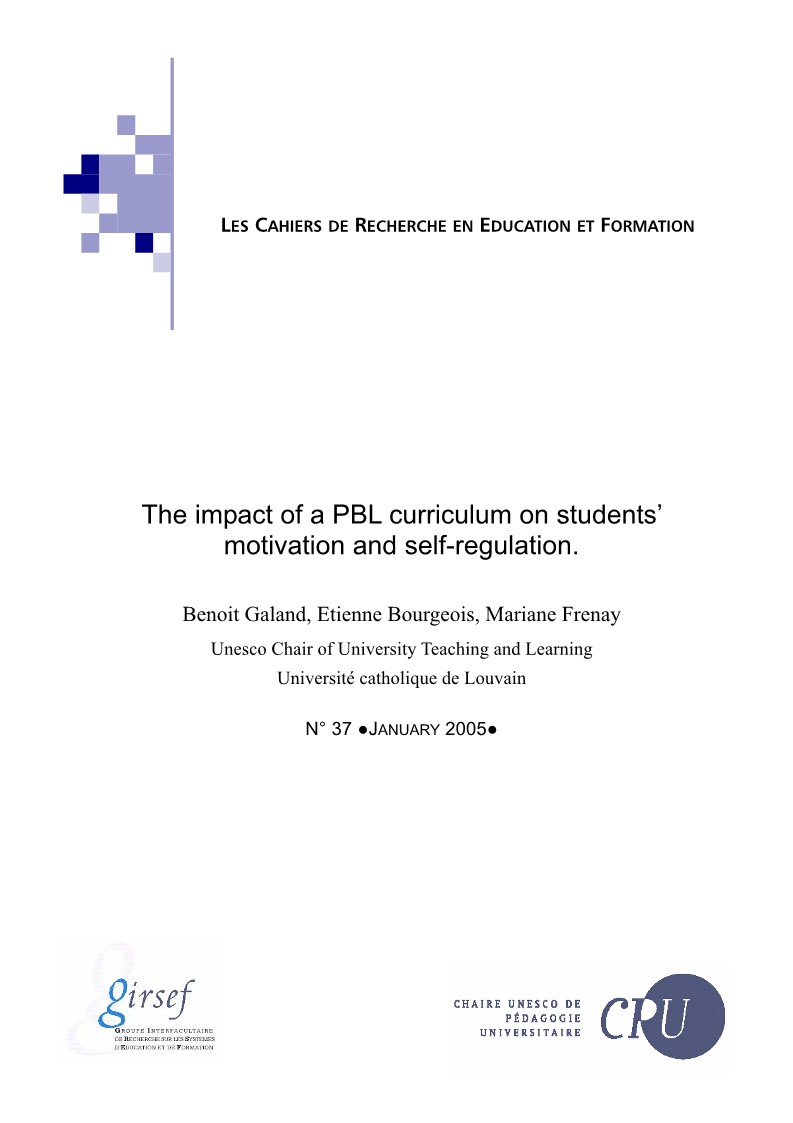The impact of a PBL curriculum on students’ motivation and self-regulation
Résumé
Problem-Based Learning (PBL) is more and more widespread in Higher Education. Among other advantages, PBL is assumed to foster students’ motivation and self-regulation. But empirical evidence supporting this claim is scarce, especially at a curriculum level. The aim of this study is to evaluate the impact of a PBL curriculum on the motivation and the cognitive engagement of undergraduate students. The study was conducted in an engineering faculty where a new two-year PBL curriculum has been implemented. The last cohort of students who attended the old curriculum was compared with the first cohort of students who attended the new PBL curriculum. Those students completed a questionnaire on perception of
instructional practices, goal orientations, self-efficacy, self-regulation strategies, and learning strategies at the end of their curriculum (data collected in 2001 and 2002). Multivariate analyses show some positive effects in favour of students from the PBL curriculum, but they also point to some problems linked to the implementation of this new curriculum (work-overload, incoherent assessment). Perceptions of instructional practices partially mediate the PBL curriculum effects. Implications for attempts to improve students’ engagement in Higher Education are discussed.
Téléchargements
Publiée
Comment citer
Numéro
Rubrique
Licence
(c) Tous droits réservés Les Cahiers de Recherche du Girsef 2020

Ce travail est disponible sous licence Creative Commons Attribution - Pas d’Utilisation Commerciale - Partage dans les Mêmes Conditions 4.0 International.




